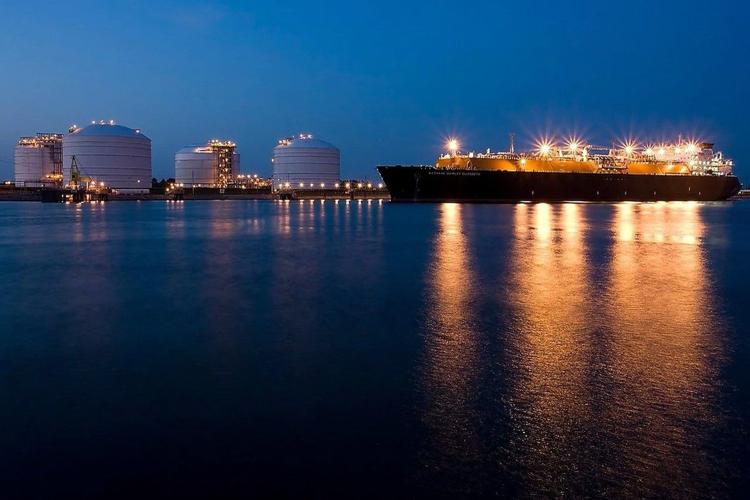Shell Signs Deal to Receive LNG at Future German Brunsbuettel Terminal
FRANKFURT (Reuters) — Shell has committed to booking a substantial part of a yet-to-be built landing terminal for LNG at the North Sea port of Brunsbuettel, as companies strive to lower their dependency on Russian pipeline gas, Shell and German LNG Terminal GmbH said on Wednesday.
A joint statement said the two parties have signed a memorandum of understanding on Shell's import and distribution through the Gasunie-operated terminal that would have an annual capacity of 8 billion cubic meters (Bcm) and should start operating in 2026 at the latest.
"The signed MoU with Shell as well as the noticeable increase in interest from the market demonstrates the importance of the import terminal in Brunsbuettel," Michael Kleemiss, managing director of German LNG Terminal, said.
Gasunie, utility RWE and German state lender KfW banded together earlier this month to redraw the terminal's shareholder structure, combining finance requirements and operational expertise.
They said they will aim to allow the terminal to function on gas first but strive for a conversion to carbon-free hydrogen in the long term.
Germany has no LNG import terminals to date but in the wake of Russia's invasion of Ukraine turned around its energy policy to try and replace east-west pipeline flows from Russia with other geographic sources and gas arrivals on board LNG ships.
Germany last year consumed 100 Bcm of gas while importing 142 Bcm due to its role as a distribution hub in continental Europe.
The LNG Terminal company previously was advanced by Gasunie with tank storage firm Vopak and Marquard & Bahls' Oiltanking, but those two exited during the new deal with KfW.
Last week, RWE spelled out future plans for its engagement at the LNG site which after its LNG function will expressly stretch to hydrogen or hydrogen derivatives such as ammonia.
Related News
Related News

- Kinder Morgan Proposes 290-Mile Gas Pipeline Expansion Spanning Three States
- Enbridge Plans 86-Mile Pipeline Expansion, Bringing 850 Workers to Northern B.C.
- Intensity, Rainbow Energy to Build 344-Mile Gas Pipeline Across North Dakota
- Tallgrass to Build New Permian-to-Rockies Pipeline, Targets 2028 Startup with 2.4 Bcf Capacity
- U.S. Moves to Block Enterprise Products’ Exports to China Over Security Risk
- U.S. Pipeline Expansion to Add 99 Bcf/d, Mostly for LNG Export, Report Finds
- A Systematic Approach To Ensuring Pipeline Integrity
- 275-Mile Texas-to-Oklahoma Gas Pipeline Enters Open Season
- TC Energy’s North Baja Pipeline Expansion Brings Mexico Closer to LNG Exports
- Consumers Energy Begins 135-Mile Michigan Gas Pipeline Upgrade, Taps 600 Workers





Comments